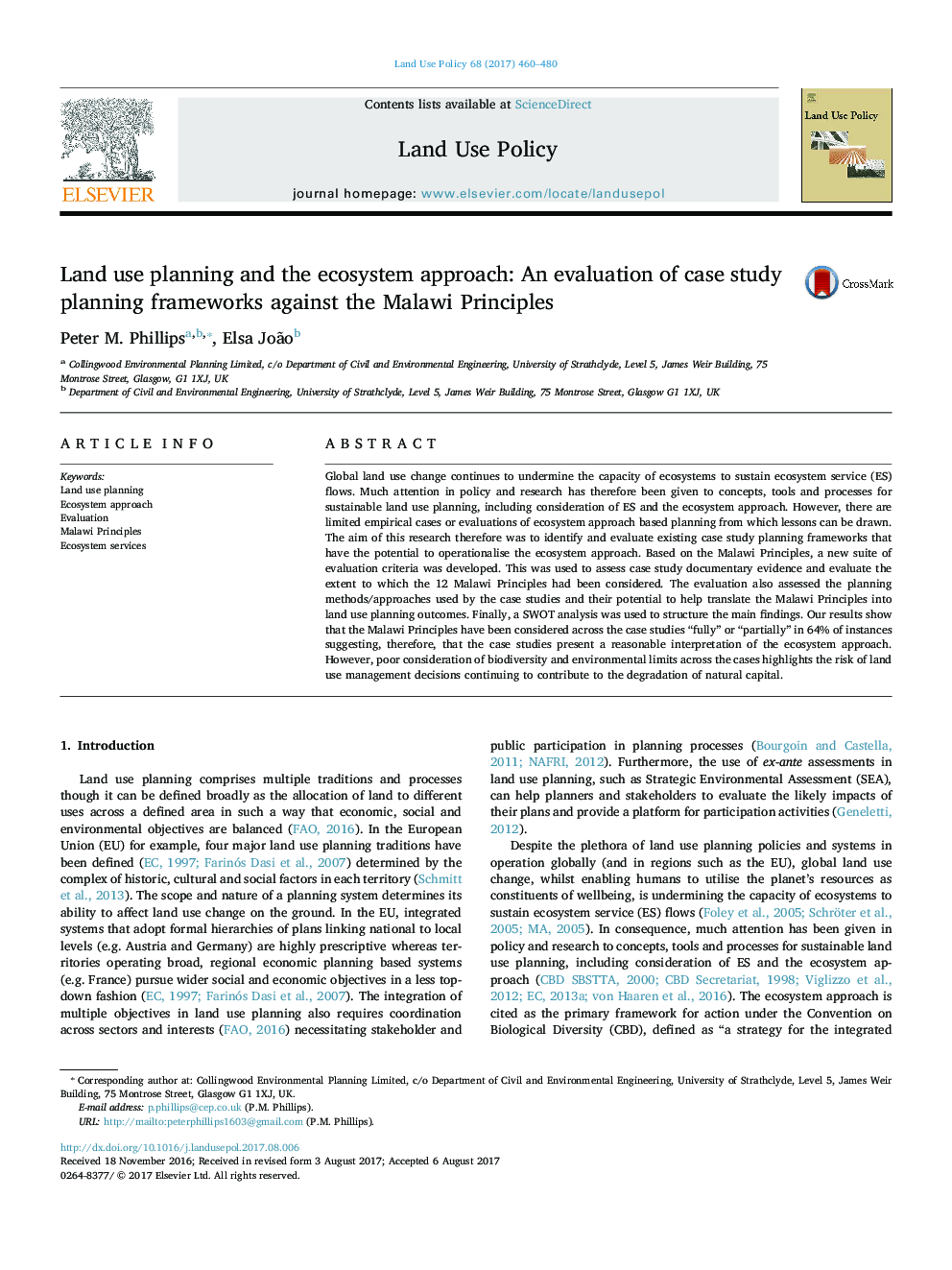| Article ID | Journal | Published Year | Pages | File Type |
|---|---|---|---|---|
| 6460577 | Land Use Policy | 2017 | 21 Pages |
â¢Case study land use planning frameworks were evaluated using the Malawi Principles.â¢The cases present a reasonable interpretation of the ecosystem approach.â¢Poor consideration of biodiversity and environmental limits is a key concern.â¢There is an opportunity for further democratisation of land use planning processes.
Global land use change continues to undermine the capacity of ecosystems to sustain ecosystem service (ES) flows. Much attention in policy and research has therefore been given to concepts, tools and processes for sustainable land use planning, including consideration of ES and the ecosystem approach. However, there are limited empirical cases or evaluations of ecosystem approach based planning from which lessons can be drawn. The aim of this research therefore was to identify and evaluate existing case study planning frameworks that have the potential to operationalise the ecosystem approach. Based on the Malawi Principles, a new suite of evaluation criteria was developed. This was used to assess case study documentary evidence and evaluate the extent to which the 12 Malawi Principles had been considered. The evaluation also assessed the planning methods/approaches used by the case studies and their potential to help translate the Malawi Principles into land use planning outcomes. Finally, a SWOT analysis was used to structure the main findings. Our results show that the Malawi Principles have been considered across the case studies “fully” or “partially” in 64% of instances suggesting, therefore, that the case studies present a reasonable interpretation of the ecosystem approach. However, poor consideration of biodiversity and environmental limits across the cases highlights the risk of land use management decisions continuing to contribute to the degradation of natural capital.
